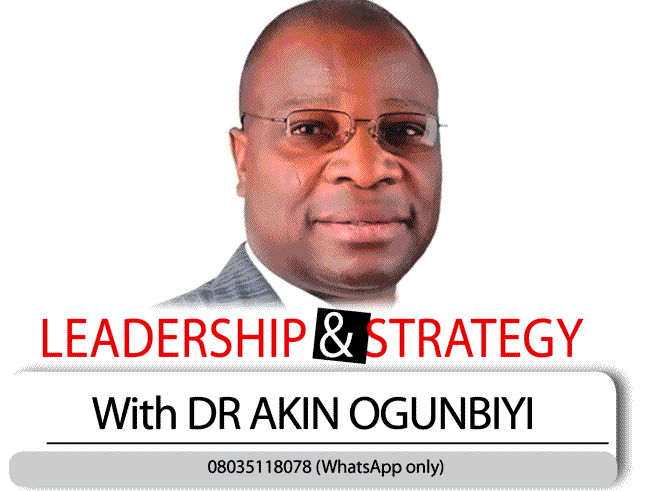
It is the responsibility of an entrepreneurial leader, whether in the public or private sector of the economy, to strengthen the social safety net by making genuine efforts to curb poverty and inequality.
Let me narrate a recent personal experience in order to provide an appropriate context. Before I continue, let me ask the question: why “Price Control?” My answer is that, micro-decisions add up to macro outcomes and macro conditions influence micro-decisions.
Now my experience. I decided to put out one of my books into the market for sale. The price was a “legal” minimum, just a little bit above the equilibrium price. The feedback I got was very instructive. Several people that wanted to buy the book pleaded that the price be lowered. What this development has thrown up is the obvious symptom of the disturbing challenges in the Nigerian marketplace.
How then do we achieve equitable outcomes for the consumer in view of this current unstable relationship between demand, supply and price? How can leaders join hands to guarantee affordable prices in this marketplace characterised by run-off inflation, hunger, worsening economic instability and unemployment?
As we all know, price and quantity move in the same direction. This movement results in a demand shift. This outcome is expected because changes in one variable, affect other variables.
Should government make a pronouncement by way of price control? This definitely will not be effective because for a price to be binding on producers, it must be higher than the equilibrium price.
So what is the way forward? The basic concepts of economics are: the management of needs, wants, demands, supply and of course, the market. There is no market without consumer needs. Ability and willingness to buy to satisfy needs or the satisfying object of demand, is affordability or adequacy of purchasing power. Demand curve is the graphic representation of the relationship between price and quantity demanded of a particular product or service. Intrinsic value is ratio of perceived benefits versus the price paid.
Smart leaders drive their businesses to thrive and not just for survival. Power strategy or the art of strategic planning, building trust and loyalty within your team as well as ensuring growth with customer partners, make it mandatory for leaders to navigate challenges by realistically responding to what is happening now (what is in front of you) and taking necessary pragmatic next steps.
All-embracing customer satisfaction has a direct impact on customer loyalty. An increase in customer satisfaction will deliver growth of customer loyalty and definitely, a thriving business. Value-adding relationship between customer satisfaction and loyalty is a pair of concepts with the proven deliverables of recommendation by customers and their patronage.
Customer satisfaction is the major determinant that impacts development of long-term relationship between providers and customers. People call it, lifetime value-delivering partnership. Thoroughly satisfied customers will, everything being equal, purchase goods and services than those who are not satisfied.
Business strategists have recommended that the success of an organization should be defined and measured by internal metrics of customers’ key outcomes. The point is that, we should drive value for the business through the Customer Value Dashboard. In other words, sustainable success should be determined by the success of customers interacting with organizations’ products and services delivered (to the organizations). That is, patronage revenues and inflows. Let us then ask ourselves, are leaders, in a robust manner, solving customers’ problems? Are customers getting the outcomes desired?
Warren Buffet, one of the most successful investors in the world with a net worth of over a hundred billion dollars, pointed out that leaders of organizations should ask themselves from time to time whether the lives of their customers are “being bettered”.
Leaders can surely work with affordable margins and still compete on the cost of money. Prevailing economic situations should not make organizations push back on enviable customer experience. With the determination to delight customers, leaders should fall back on their organizations’ strengths and capabilities.
I hereby make a passionate call to business leaders to put in stellar efforts to achieve equitable outcomes for customers. Leaders should provide the enablement for customers to achieve their want-satisfying capability and benefits for consuming their organizations’ goods and services.
As I mentioned earlier, enhancing customer satisfaction is crucial for business success and enduring sustainability. Leaders must make customers feel valued and satisfied. We can realistically connect with customers’ needs in a systemic way. Let us be “at home” with their realities of life.
For example, few years ago, the Mutual Benefits team created an insurance empowerment product for tomato sellers in Oyingbo market (Lagos State, Nigeria). With an affordable premium, Mutual Benefits provided the enablement for basic medical needs and at the same time, the traders could buy additional baskets of tomatoes to further enlarge their business.
Even in business to business (B2B) interactions, leaders can widen their views of the customers’ activities for more affordable upsell. This will definitely deliver additional value to the customers or clients.
At these challenging times, personal touch is needed in interactions. Personalize conversations. Be accountable, respectful, empathetic and trustworthy. Honour promises and keeps rebuilding value-adding relationships.
Let me conclude with that power of customer satisfaction and loyalty. It is that capacity to provide the sum of tangible and intangible benefits as well as equitable price. It is the combination of service plus additional service and price.
READ ALSO: Reintroduce commodity price control board
Get real-time news updates from Tribune Online! Follow us on WhatsApp for breaking news, exclusive stories and interviews, and much more.
Join our WhatsApp Channel now
© 2023 Tribune Online – an online publication of African Newspapers of Nigeria Plc. All rights reserved
Login to your account below
Please enter your username or email address to reset your password.
© 2023 Tribune Online – an online publication of African Newspapers of Nigeria Plc. All rights reserved
